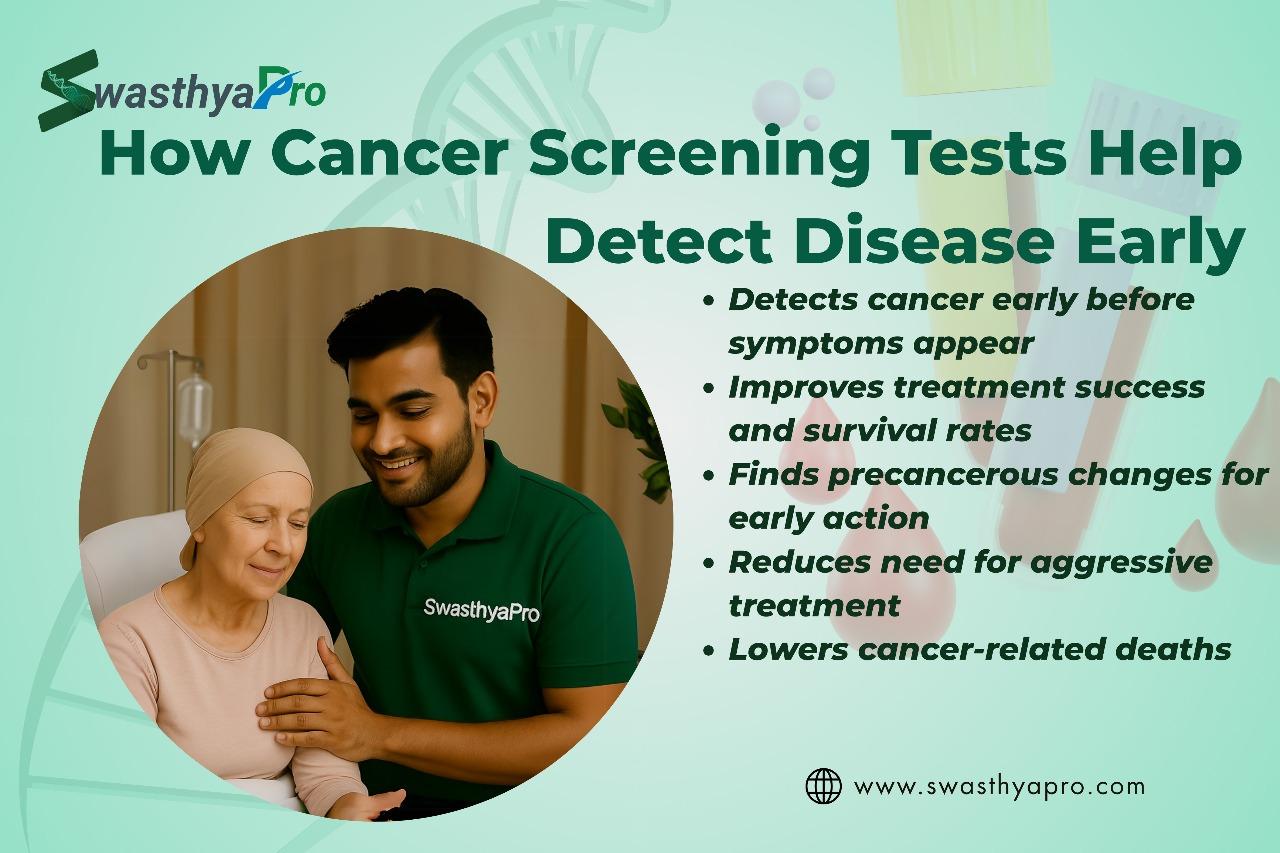Cancer screening test for family history: what you need to do differently

When cancer runs in the family, it brings with it a quiet worry. You may look at a parent, sibling, or grandparent who fought the disease — and wonder if you’ll have to face the same. That’s where a cancer screening test becomes more than just a routine check-up. It becomes a strategy.
If you have a family history of cancer, you don’t need to panic. You need to prepare. This guide helps you understand which cancer screening test to consider, when to start, and how your path differs from others.
Family history changes everything
Most general screening guidelines are made for people at average risk. But if you have one or more close relatives who had cancer — especially at a young age — you’re not in that average group anymore. You're considered “high risk.”
And that means your cancer screening test timeline likely needs to start earlier, happen more often, or involve different testing methods.
Breast and ovarian cancer (especially for women)
If your mother, sister, or grandmother had breast or ovarian cancer — particularly before age 50 — you may be at higher risk. This is especially true if BRCA1 or BRCA2 genetic mutations are involved.
In this case, your doctor may suggest starting a cancer screening test like a mammogram or breast MRI as early as your 30s, rather than waiting until 40 or later. For ovarian cancer, regular pelvic exams, CA-125 blood tests, and transvaginal ultrasounds may be recommended.
If you’ve never had genetic testing, your doctor may also advise it to understand your risk better and tailor your cancer screening test plan.
Colorectal cancer: A silent family thread
If a parent or sibling had colon or rectal cancer, your own risk is doubled. For people with family history, a cancer screening test like a colonoscopy may begin at age 40 — or 10 years before the age your relative was diagnosed, whichever comes first.
Unlike the average person who may get a colonoscopy every 10 years, those with family history may need it every 5 years.
Don’t wait for symptoms like blood in stool or stomach pain. A cancer screening test can help catch and even remove pre-cancerous growths before they turn into cancer.
Prostate cancer: For men with affected fathers or brothers
Men with a close family member who had prostate cancer — especially at a younger age — have a higher risk. A simple PSA blood test is the standard cancer screening test here, and doctors may recommend starting as early as age 40.
If multiple relatives were diagnosed, screening could begin even earlier. The good news? The PSA test takes minutes, and early detection makes all the difference in treatment success.
Lung cancer: If your family history includes smoking
If your family history includes lung cancer and a pattern of heavy smoking, you should consider a low-dose CT scan. Even if you quit years ago, your risk could still be elevated — especially if more than one family member was affected.
This cancer screening test is fast, painless, and can catch small growths long before they become serious.
Know your history, then take control
Many people don’t know the full details of their family’s health — but it matters. Talk to your relatives. Find out what types of cancer affected your family, at what ages, and how they were treated.
Bring this information to your doctor so they can recommend the right cancer screening test plan. It may include earlier testing, more frequent follow-ups, or genetic counseling.
Final thoughts
You can’t change your genetics — but you can change how prepared you are. Having a family history of cancer isn’t a guarantee you’ll get it. It’s a signal. A message. A chance to act early.
A cancer screening test gives you power — not fear. It’s not about waiting for illness. It’s about staying one step ahead of it.
If cancer is part of your family’s past, let screening be part of your future. Your story doesn’t have to repeat theirs.
- Art
- Causes
- Best Offers
- Crafts
- Dance
- Drinks
- Film
- Fitness
- Food
- Spellen
- Festival
- Gardening
- Health
- Home
- Literature
- Music
- Networking
- Other
- Party
- Religion
- Shopping
- Sports
- Theater
- Wellness



